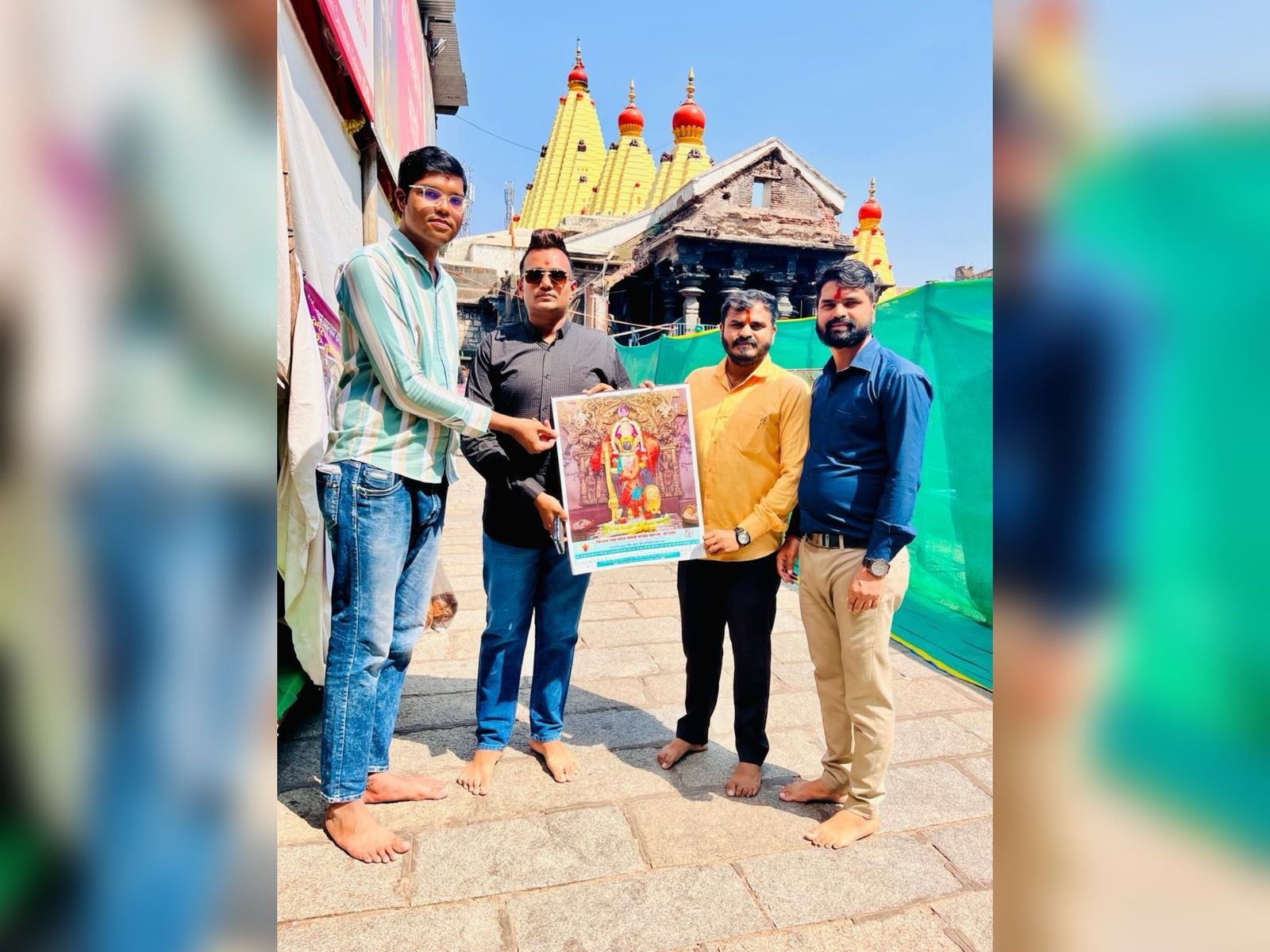Ketan Chaure, a distinguished Class One Officer in the Prime Minister’s Office (PMO) and the Provident Fund Commissioner, recently paid a visit to the revered Shree Mahalaxmi Ambabai Temple in Maharashtra. Known for his commitment to public service and governance, Chaure took a moment from his demanding schedule to immerse himself in India’s rich spiritual heritage.
A Journey of Reflection and Devotion – Born on November 1, 1996, in Nandurbar, Maharashtra, Ketan Chaure has established himself as a dedicated bureaucrat, ensuring efficiency and transparency in his administrative duties. His visit to the Mahalaxmi Ambabai Temple highlights his deep connection to India’s cultural and spiritual traditions, showcasing a balance between professional obligations and personal introspection.
The Shree Mahalaxmi Ambabai Temple, a significant Hindu shrine, is dedicated to Goddess Mahalaxmi, worshipped by devotees as Ambabai. The temple attracts pilgrims from across the country, who seek blessings for prosperity and well-being. Chaure’s presence at the temple was a testament to his belief in the power of spirituality to guide and rejuvenate individuals in high-pressure roles.
A Leader Rooted in Tradition and Service – As an officer committed to the welfare of citizens, Chaure has played a pivotal role in managing provident funds, ensuring financial security for workers nationwide. His leadership style is marked by a strong emphasis on efficiency and citizen-centric governance. However, beyond his official responsibilities, he continues to uphold the cultural and ethical values that shape his worldview.
His visit to the temple underscores the importance of spiritual grounding, even for those in the highest echelons of government. It reflects a broader perspective—that true leadership involves not just administrative excellence but also a deep connection to the ethos of the nation.
Blending Duty with Spirituality – For many bureaucrats, the demands of governance leave little time for personal reflection. However, Chaure’s ability to integrate moments of introspection into his journey highlights his holistic approach to life and leadership. His visit to the temple serves as a reminder that even in the fast-paced world of administration, taking a step back to connect with one’s roots can provide renewed strength and clarity.
As Ketan Chaure continues his impactful career in public service, his journey remains an inspiration—an example of how tradition and modern governance can coexist harmoniously. By staying true to his values while striving for national progress, he exemplifies the qualities of a visionary leader dedicated to both duty and devotion.



